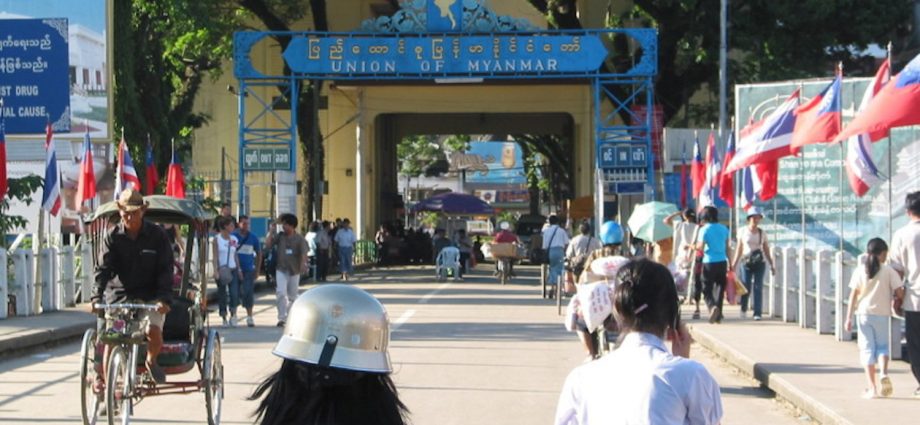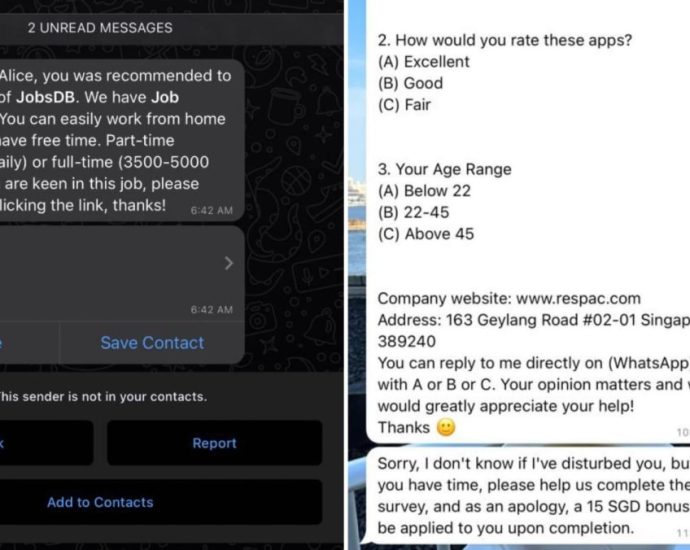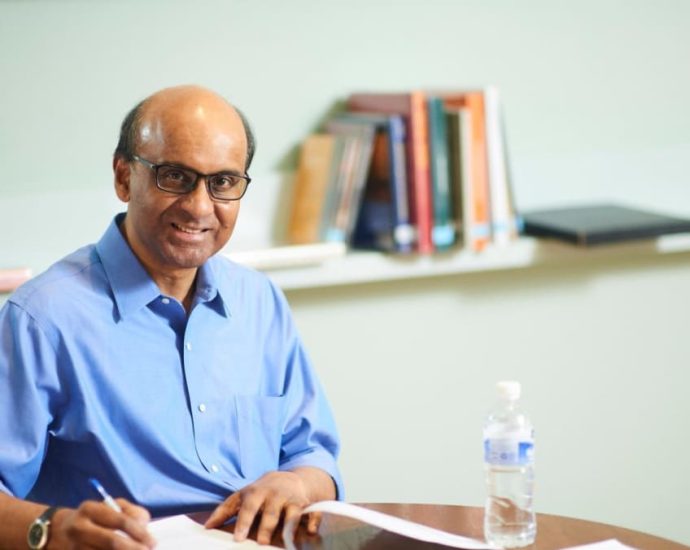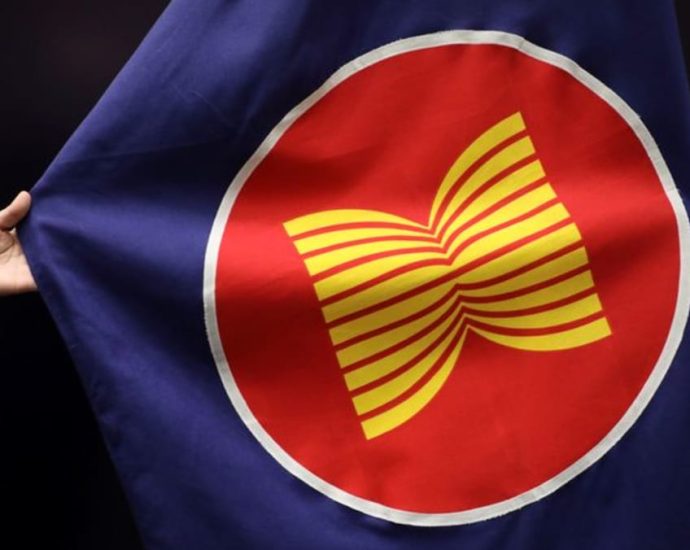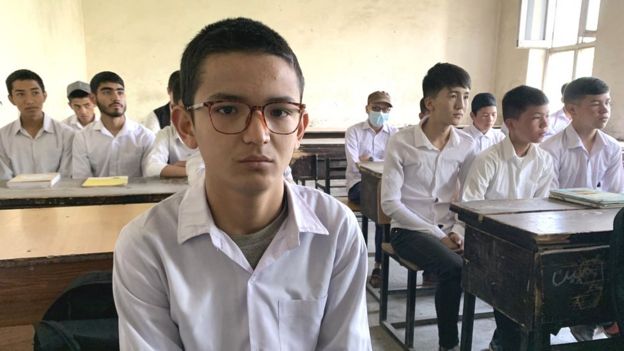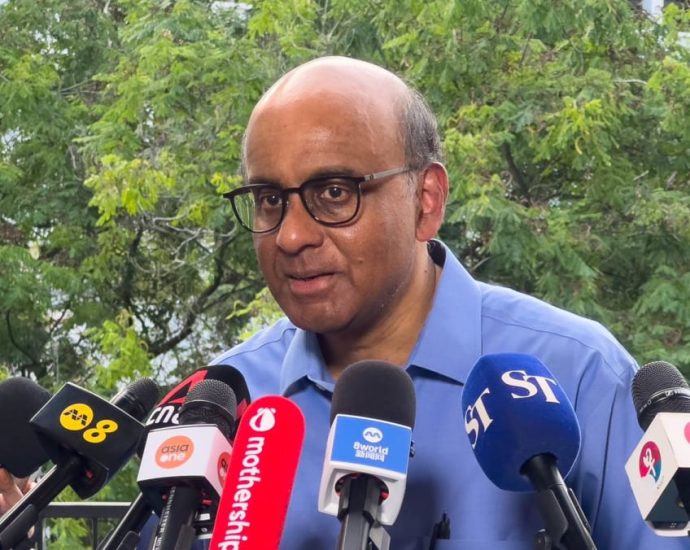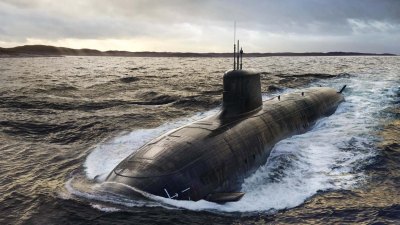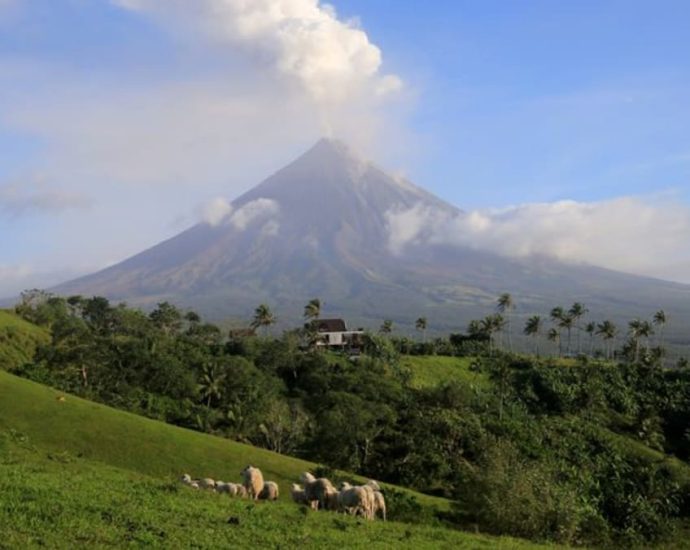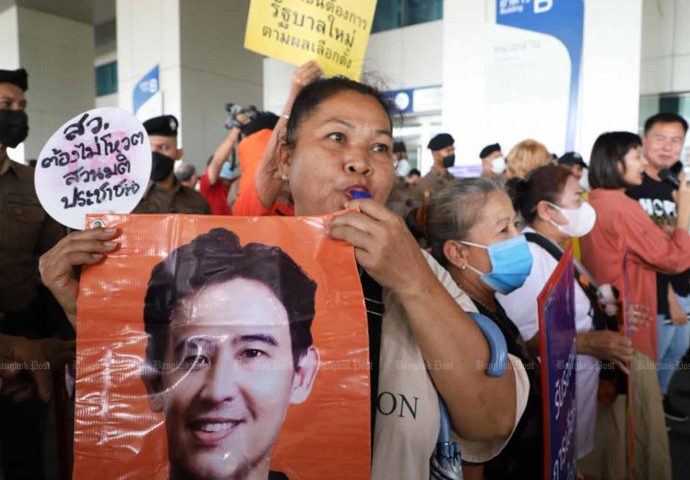Escaping Myanmar scam gangs a challenge
Government says it has repatriated 63 of 140 Thais who sought help

CHAING RAI: More than 140 Thais have sought help after being duped by online scam gangs to work in Myanmar’s Shan state since last year, and about 60 have been rescued so far, according to the Consular Affairs Department
Ruj Thammongkol, the department’s director-general, provided the update at a meeting on Wednesday with representatives of other groups seeking solutions to speed up the repatriation of victims.
Participants included Paveena Hongsakul, president of the Paveena Foundation for Children and Women, and officials from the Thai embassy in Yangon, the Chiang Rai Chamber of Commerce and the Migrant Worker Assistance Centre in Chiang Rai.
Many Thais are lured by online advertisements on social media promising higher wages and attractive welfare packages, said Pol Col Sanya Niumpradit, Police Attache of the Royal Thai Embassy in Myanmar.
However, they later became victims of scammers, with their passports taken, he said, adding that many had contacted the embassy for help.
Pym Chaiyasan, first secretary of the embassy, said most of the victims came from Thailand’s northeastern and central regions, and none were Chiang Rai residents.
Amnat Phalapleewan, director of the Thai Nationals Overseas Interests Protection Division of the Consular Department, said most of them reported having been lured to work illegally in Myanmar.
“About 140 people asked us for help but we have been able to repatriate only 63 of them so far,” he said. “The problem is that the rescue process can take about two to three months.”
Establishing an investigation centre to punish those who file false complaints to the division could reduce the rescue process to a few weeks, he said.
An immigration office in Chiang Rai also reported that Thais who were lured by criminals did not cross the border using the Mae Sai immigration checkpoint. Instead, they used natural crossings, which made it hard for officers to track them, it said.
According to a report by The Border Consortium (TBC), 11 out of 18 Thais, aged 20–30 years old, were rescued from call centre gangs from November to January, leaving the rest yet to be rescued.
It said the victims viewed recruitment ads on Facebook, Line and TikTok about working in the Myanmar border town of Tachileik, promising free food and accommodation and high pay.
However, after crossing, they were sent to other cities in Shan state to work for call centre gangs, it said.
Some of them were forced to sign contracts written in the Chinese language, it said, noting that they were abused while some of the women were forced to sell sex.
A similar message came from the Paveena Foundation for Children and Women, which said some of the women were forced to use drugs and became prostitutes while others were held for ransom.
About S$20 million lost to job scams since May: Police
SINGAPORE: About S$20 million (US$15 million) have been lost by job scam victims since May this year, the Singapore Police Force (SPF) said on Thursday (Jun 8). There have been at least 1,399 victims in that time, the police added. The scammer will entice victims by offering them fake job opportunitiesContinue Reading
Snap Insight: Heft of Tharman Shanmugaratnam may deter others from contesting Singapore Presidential Election
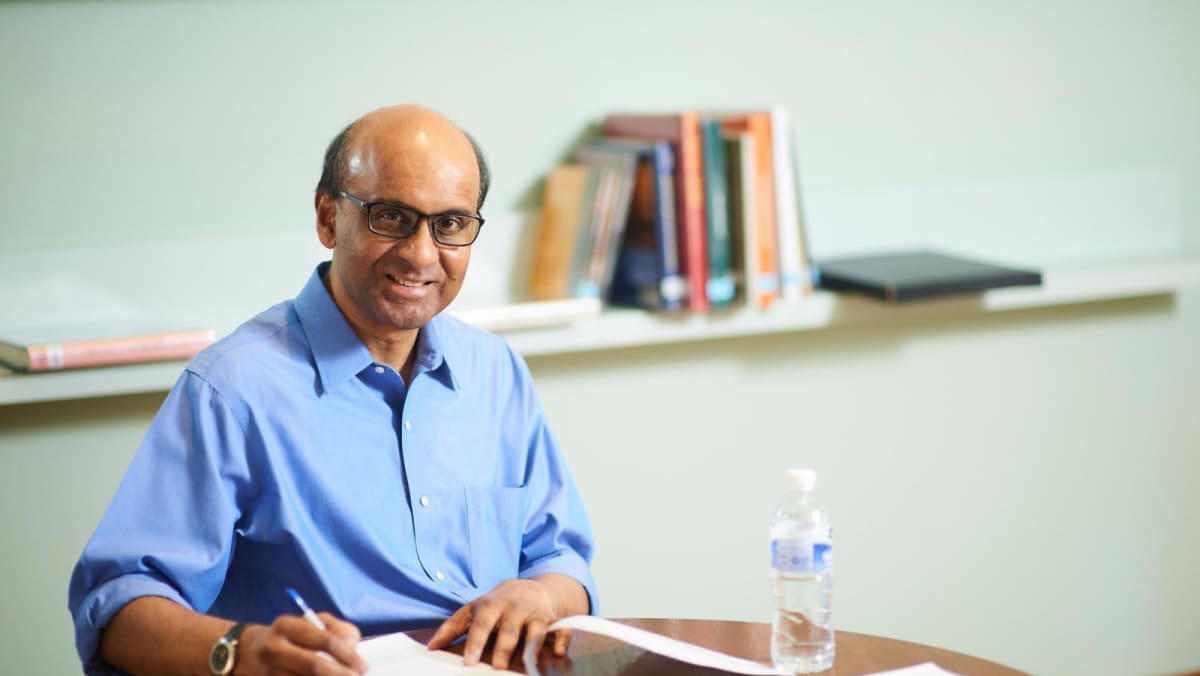
Surveys conducted by the Institute of Policy Studies suggest that in lieu of deep knowledge of candidates’ backgrounds and inclinations, voters would opt for candidates of the same ethnicity. If the voters are minorities, their second choice would be a Chinese candidate. In this way and left on its own, Chinese candidates would always prevail.
If there is a contest this year, it will be an opportunity to see if qualifications and political standing can transcend race when it comes to electing our Head of State. While Mr Tharman is ethnically Indian, his family is multiracial and arguably, quintessentially Singaporean – a unique asset to our sense of national identity.
A CANDIDATE HELD IN HIGH REGARD
Senior Minister Tharman is well-regarded domestically and on the international stage. His tenure as Finance Minister from 2007 to 2015 contributed to Singapore’s progressive socio-economic policymaking and thought leadership at international fora.
As Singapore seeks its way through a period of shifting geopolitical tides among major powers and growing concerns about the costs of living, Mr Tharman has the depth of knowledge and grasp of the key principles of fiscal prudence to exercise the second key to the country’s past reserves, an important custodial power the President wields.
It is possible to imagine how world leaders and intellectuals will not only put the Istana on their calling card, but be prepared to trade insights on global trends with him as equals, if elected.
This will be an asset for Singapore when the world is in a state of flux. This is not to say that Mr Tharman or any President can set government policy, but he will become a useful and trusted conduit of strategic information about the changing policy context for the government.
ASEAN to hold first joint military drills in South China Sea
JAKARTA: Southeast Asian nations have agreed to hold their first joint military drills in the South China Sea, Indonesian officials said on Thursday (Jun 8), as tensions grow over China’s increasing assertiveness in the region. “We will hold joint military drills in the North Natuna Sea,” Indonesian military chief Yudo MargonoContinue Reading
Afghanistan blast: Taliban officials targeted at mosque prayers
 unknown
unknownAn explosion inside a mosque in north-east Afghanistan has caused multiple casualties.
Reports say several local Taliban officials were among those killed or wounded.
A local official said the blast happened during a prayer service for the deputy governor of Badakhshan province, who was killed by a car bomb earlier this week.
The Islamic State militant group said they carried out the car bomb attack.
Muizuddin Ahmadi, the local Taliban head of information, said it was unclear how many people had been killed in the mosque blast in the provincial capital, Faizabad, but there had been multiple casualties.
Mourners were attending the funeral of Maulvi Ahmadi, the Taliban deputy governor of Badakhshan, who was killed on his way to work on Tuesday. One other person was killed and six wounded in that attack.
Two sources confirmed to the BBC that two local Taliban officials were killed at the mosque. They include the former police commander of northern Baghlan province.
Eyewitnesses said gunfire could be heard after the explosion.
Footage sent to the BBC shows several casualties arriving at the hospital in the capital by ambulance.
Related Topics
-
-
13 May 2022
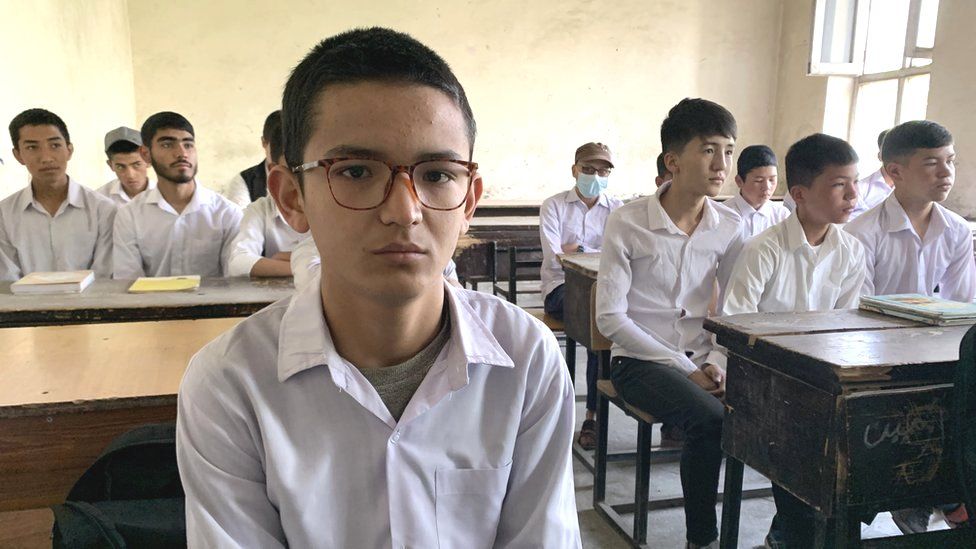
-
Is US readying to reveal captured alien spacecraft?
Claims the US government has secretly retrieved crashed alien spacecraft and their non-human occupants are hardly new. They are firmly entrenched in post-war American UFO lore and conspiracy theory, inspiring the most famous narrative in ufology: the “Roswell incident.”
Now, however, journalists Leslie Kean and Ralph Blumenthal have injected fresh vigor into these aging claims – apparently with the Pentagon’s approval.
In an article for science and technology news site The Debrief, they report the US government, its allies, and defense contractors have retrieved multiple craft of non-human origin, along with the occupants’ bodies.
Additionally, they report this information has been illegally withheld from US Congress, the All-domain Anomaly Resolution Office established by the US Department of Defense in 2022 to look into UFOs, and the public.
What are the claims?
The primary source for the new claims is former US intelligence official David Grusch.
Grusch’s credentials, verified by Kean and Blumenthal, are impressive. He is a veteran of the National Geospatial-Intelligence Agency and the National Reconnaissance Office. He represented both organizations on the US government’s task force studying unidentified aerial phenomena (the official term for UFOs).

Grusch says the retrieved materials are:
of exotic origin (non-human intelligence, whether extraterrestrial or unknown origin) based on the vehicle morphologies and material science testing and the possession of unique atomic arrangements and radiological signatures.
Grusch’s claims are supported by Jonathan Grey, who works for the National Air and Space Intelligence Center, where he focuses on analysis of unidentified aerial phenomena. Grey told Kean and Blumenthal:
The non-human intelligence phenomenon is real. We are not alone […] Retrievals of this kind are not limited to the United States.
How credible are the claims?
Kean and Blumenthal are credible and accomplished reporters on UFOs.
In 2017, writing with Helene Cooper for the New York Times, they revealed a secret US$22 million Pentagon UFO research program. That article did much to initiate a wider rethinking about UFOs, avoiding stereotypes, stigma and sensationalism.
Most of the subsequent “UFO turn” in US defense policy and public discourse has focused on images and eyewitness testimony of anomalous airborne objects. Now, Kean and Blumenthal may have brought anomalous objects themselves – and even their supposed non-human occupants – into the conversation.

[embedded content]
Shortly after the Debrief article, Australian journalist Ross Coulthart’s interview with Grusch appeared on US news network News Nation. Former Deputy Assistant Secretary of Defense for Intelligence, Christopher Mellon, has also published an article in Politico calling for greater transparency.
This looks a lot like an orchestrated effort to convince the public (and US Congress) something much more substantial than “things in the sky we can’t explain” is going on.
Approved by the Pentagon?
Grusch seems to have followed Pentagon protocol in publishing his information. Kean and Blumenthal write Grusch:
provided the Defense Office of Prepublication and Security Review at the Department of Defense with the information he intended to disclose to us. His on-the-record statements were all “cleared for open publication” on April 4 and 6, 2023, in documents provided to us.
What does that mean? A Prepublication and Security Review is how the Pentagon confirms information proposed for public release is reviewed to ensure compliance with established national and Department of Defense policies, and to determine it:
contains no classified, controlled unclassified, export-controlled, or operational security related information.
If Grusch’s information is true, it is surely both “classified” and “operational security related.” So why would the Pentagon approve its publication?
If Grusch’s information is false, it would probably not qualify as classified or operational security related. But this raises another question: why would the Pentagon approve the publication of an unfounded conspiracy theory about itself?
Doing so would likely mislead the public, journalists, and Congress. It would also undermine the Pentagon’s own attempt to understand the unidentified aerial phenomena problem: the All-domain Anomaly Resolution Office.
An official denial
Indeed, the All-domain Anomaly Resolution Office told News Nation it:
has not discovered any verifiable information to substantiate claims that any programs regarding the possession or reverse-engineering of extraterrestrial materials have existed in the past or exist currently.
Grusch has an explanation for this apparent ignorance. When it comes to unidentified aerial phenomena investigations, he says, the US government’s left hand doesn’t know what its right is doing, with:
multiple agencies nesting [unidentified aerial phenomena] activities in conventional secret access programs without appropriate reporting to various oversight authorities.
Timothy Good’s classic 1987 exploration of UFO investigations, Above Top Secret, described similar bureaucracy.
Nested activities and segregated knowledge
The notion of “nested” unidentified aerial phenomena activities, segregating knowledge within vast bureaucracies, is partly what makes Grusch’s claims both intriguing and (for now) unverifiable.
If this is the case, organizations focusing on unidentified aerial phenomena, such as the All-domain Anomaly Resolution Office, may operate in earnest and report transparently on the best information they have. Yet they may also be deprived of information essential to their activities.
This would make them little more than PR fronts, designed to create the impression of meaningful action.
In the absence of direct experience of unidentified aerial phenomena, most of us rely on information about them to form our beliefs. Scrutinizing how this information is produced and distributed is essential.
US government activity in this area will continue. Congressman James Comer, chair of the House Oversight Committee, has said he will hold a hearing on UFOs in response to Grusch’s allegations.
Adam Dodd is Tutor, School of Communication and the Arts, The University of Queensland
This article is republished from The Conversation under a Creative Commons license. Read the original article.
Tharman Shanmugaratnam hopes to be a ‘unifying figure’ if elected as President
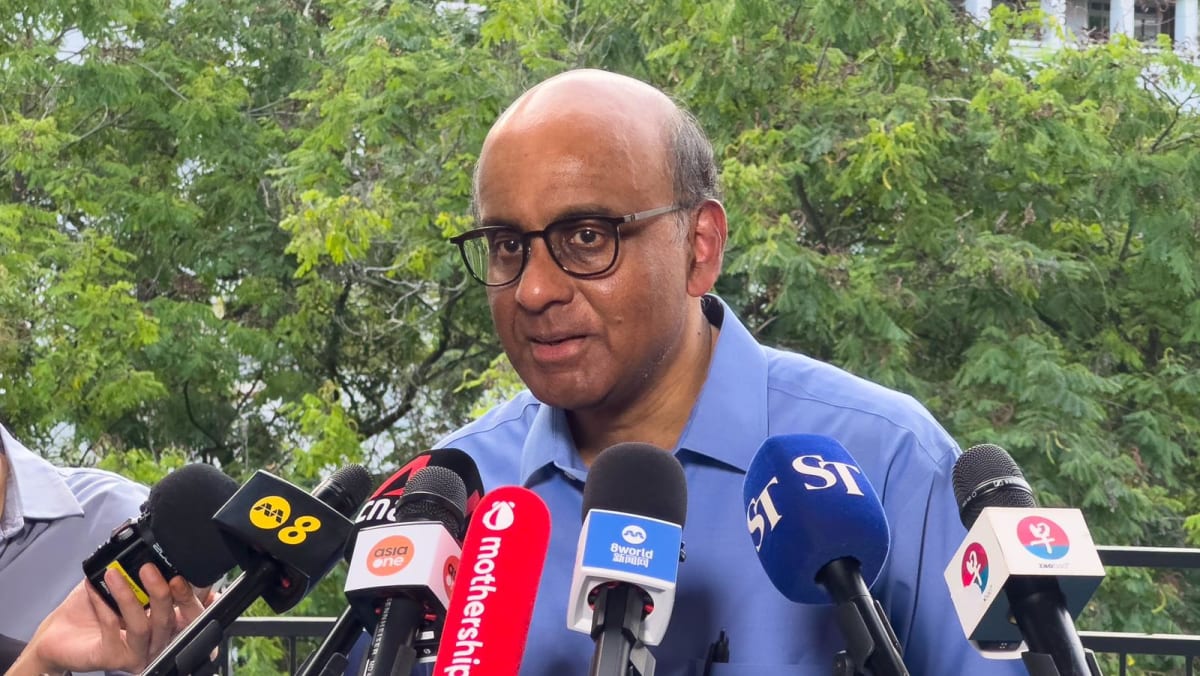
Mr Tharman also said that his decision to run for President was not rushed.
“I’ve been thinking about it for some months, I wanted to wait to see whether President Halimah was going to stand again but people have been talking to me for some time,” he said.
“I said it is a difficult decision because I’m very comfortable as a policymaker but I think we are entering a fundamentally different era, fundamentally different times,” he said.
He added that people have more varied views and preferences, and that Singapore is maturing as a population and as an electorate.
Internationally, it is a fundamentally more uncertain environment, and Singapore needs to hold its own.
“I make no assumptions about my chances in this race. I’ve never made assumptions in all the elections I have taken part in. This is different because it’s not a political contest, unlike general elections I’ve been through, this is not a political contest. This is about choosing the right person,” he said.
“I still make no assumptions about my chances. I put myself forward to serve to the best of my ability using all my experience in economics and finance, in international affairs, and the standing I have internationally.
“I put myself forward to serve Singaporeans in this new role.”
Following discussions with the other Members of Parliament for Jurong GRC, he said Mr Shawn Huang will take over his Meet-the-People sessions, covering both Taman Jurong and Jurong Spring.
For all other events such as meeting residents for other matters, the other MPs will take turns, he said.
“Once the party decides on who might be a potential candidate for the next round, he or she will have to be on the ground, working very hard,” said Mr Tharman.
“So that’s the system. I think Jurong will be served very well because we work very cohesively as a team. I must say I’ve had a wonderful team.”
AUKUS subs drifting toward a sea of controversy
Australia’s AUKUS nuclear-powered submarines will enjoy the freedom of navigation beyond Australian waters and freely be able to undertake Indo-Pacific patrols throughout the Pacific, Southeast Asia, the Indian Ocean and elsewhere.
This is clear from any analysis of the 1982 United Nations Convention on the Law of the Sea (UNCLOS), which has a total of 169 state parties.
UNCLOS has been labeled a “package deal” — an “all-or-nothing” treaty whereby states either accept or reject its terms and accompanying rights and entitlements. Expansive maritime zones give coastal states considerable new maritime entitlements and counter-balance against the guaranteed freedoms of navigation for ships of all states, which maritime powers value.
Little significant distinction is made in UNCLOS between the navigational rights of merchant ships and warships, including submarines. But despite UNCLOS there remain tensions with respect to the navigational rights and entitlements of nuclear vessels and warships, and Australia’s AUKUS submarines may eventually sail into a sea of Indo-Pacific controversy.
There are already indicators of choppy waters ahead. Since 1987, New Zealand has prohibited port visits of all nuclear-powered and nuclear-armed vessels. While this law would bar AUKUS submarines from visiting a New Zealand port, it would not impact their navigation in New Zealand waters while undertaking Tasman Sea patrols.

Likewise, while all of the South Pacific is a designated nuclear-free zone under the 1985 Treaty of Rarotonga, the freedom of navigation of nuclear-powered and nuclear-armed vessels remains under the treaty.
But this has not stopped some of Australia’s Pacific neighbors from raising concerns over AUKUS and how comfortably Australia’s acquisition of nuclear-powered submarines sits alongside the Treaty of Rarotonga.
Australia’s Foreign Minister Penny Wong, and other Australian government officials have made it clear in their frequent visits to the South Pacific that Australia will uphold all of its commitments under the Treaty of Rarotonga and respect the South Pacific Nuclear Free Zone.
There have also been concerns within Southeast Asia over vessels carrying hazardous cargo and associated nuclear issues. At various times, regional states such as Singapore, Malaysia and Indonesia have sought to bar the transit passage of vessels carrying mixed oxide fuel to Japan through the Straits of Malacca and Singapore.
These concerns also align with ASEAN as a nuclear-free zone under the 1995 Treaty of Southeast Asia Nuclear Weapon-Free Zone. Still, like the Treaty of Rarotonga, the freedom of navigation is not impacted by this ASEAN treaty.
Constraints on port visits and nuclear-free zones are unlikely to hinder where AUKUS submarines can navigate. But unilateral actions on the part of some states could have consequences for Australia.
The potential for such actions has been highlighted by statements from regional government officials, such as Indonesia’s suggestion that the passage of Australian submarines would be barred because “AUKUS was created for fighting.”
The freedom of navigation of warships has historically been sensitive. A warship cannot enter a foreign port without first seeking permission, traditionally referred to as “diplomatic clearance.”
While this constraint does not apply within the territorial sea, some coastal states insist that foreign warships can only enter their territorial sea following notification or authorization. Indo-Pacific states that advance this position include Bangladesh, Cambodia, China, India, Indonesia, Malaysia, Myanmar, Pakistan, Philippines, South Korea, Sri Lanka, Vanuatu and Vietnam.
The emergence of AUKUS has given greater prominence to this debate, with Malaysia’s Defense Minister stating in March that the AUKUS submarines would need to seek permission to navigate through Malaysian waters and on the surface.
But this view is not widely shared. It is especially rejected by the major Western maritime and naval powers, including Australia, and is regularly challenged by United States Freedom of Navigation Operations in the Chinese-claimed waters of the South China Sea.
This raises the question of how some Southeast Asian states may respond to increased maritime tensions in the South China Sea, over the Taiwan Straits or in East Asia.
There are already concerns over Australian AUKUS submarines using Southeast Asian waters as an international maritime highway from Australia to the South China Sea and areas further north.
UNCLOS lays down the relevant international legal framework in peacetime. Debates on how UNCLOS should be interpreted take place on the margins, but its core provisions are generally respected.
But if a regional armed conflict was to break out, it must be anticipated that a diverse range of positions will be taken on the freedom of navigation of what may be seen as belligerent vessels passing through neutral waters.

Citing the 1936 Montreux Convention, Turkey’s denial of access to Russian warships through the Black Sea highlights the sensitivity associated with warship navigation during an armed conflict.
In Southeast Asia, ASEAN members may be particularly protective of their legal neutrality if any future regional conflict were to arise. They may unilaterally close their waters to the warships of belligerent powers, or of those supporting one party in a dispute.
Australia will need to undertake the diplomatic groundwork now and in the future to ensure that AUKUS submarines enjoy accepted navigational rights at all times.
Professor Donald R Rothwell is Professor of International Law at the ANU College of Law, Australian National University.
This article was originally published by East Asia Forum and is republished under a Creative Commons license.
Philippines on alert as Mount Mayon volcano spews ash
MANILA: Philippine scientists said that a “hazardous eruption” of a volcano in the archipelago could be days or weeks away, and urged the evacuation of nearby residents from their homes. Hundreds of families living around Mount Mayon in central Albay province are expected to be moved to safer areas afterContinue Reading
Pro-Pita group wants complaints dismissed
Demonstrators ask Election Commission to hurry up and endorse vote results so new government can get to work

A group of demonstrators on Thursday demanded the Election Commission dismiss all complaints against Move Forward Party leader Pita Limjaroenrat and endorse official election results as soon as possible to pave the way for his government.
About 50 members of the June 24 Democracy group showed up at the office of the EC at the government complex on Chaeng Watthana Road on Thursday afternoon to voice their demands.
Their leader, Somyot Prueksakasemsuk, said they wanted the EC to endorse the results of the May 14 polls immediately.
“As the EC has not verified 95% of the MP vote results, the opening of the House is delayed and the parliament cannot convene to elect the prime minister,” said Mr Somyot, who spent seven years in prison after being convicted of lese-majeste and defamation.
“This lets Gen Prayut Chan-o-cha, the caretaker prime minister and defence minister, head the government and remain in power.”
Attempts to block Mr Pita and the party that received overwhelming voter support from forming a government has resulted in an “ongoing political crisis”, Mr Somyot said. Move Forward Party received 14.44 million votes in the party-list poll, far ahead of second-place Pheu Thai with 10.96 million.
Mr Somyot’s group said the EC should not accept any of the complaints filed in connection with Mr Pita’s small shareholding in iTV Plc; otherwise, there could be mass demonstrations, he said.
The constitution prohibits a shareholder of a media organisation from running as an MP in a general election. iTV has not been actively involved in any kind of media business for more than 15 years.
“If the EC accepts the complaints for consideration, it will demonstrate its connection with coupmakers,” said Mr Somyot, noting that the EC was appointed by senators who in turn were installed by Gen Prayut and his allies.
Mr Pita held a very small amount of iTV shares and would be unable to influence the business in any way even if it was still involved in media, said Mr Somyot.
“Such petitions and their acceptance will be considered as ill intentioned and the destruction of democracy,” he added.
Mr Pita earlier admitted he had 42,000 shares in iTV but said he held them as the manager of his late father’s estate and had since transferred the shares to other people.
Mr Somyot also demanded that the EC endorse 95% of the MPs-elect, thus making the election official, by June 20 or as soon as possible. He said his group would return to the EC on June 20 if it did not see any progress.
The EC has said that it it is confident that it will be able to endorse the results more quickly than it did after the 2019 polls.
Under the law, the EC has 60 days from Election Day, or until July 13, to certify at least 95% of all MPs-elect to make the vote results official. In 2019, it completed this task on May 8, or 45 days after polling day. This year, the 45-day mark would fall on June 28.

